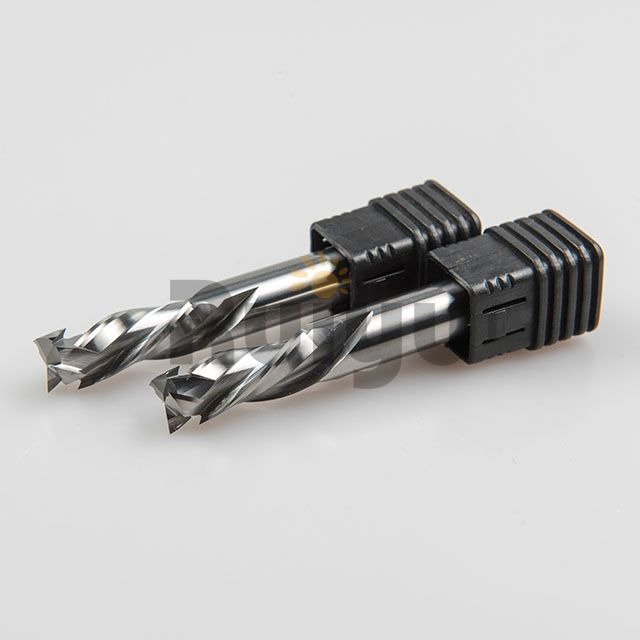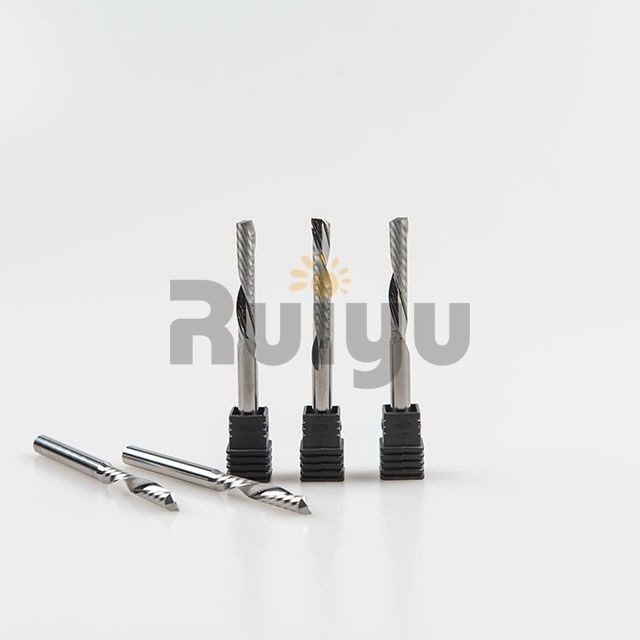Introduction — why woodworking end mills deserve their own spotlight
Woodworking end mills (solid-carbide spiral cutters, router end mills, spiral bits) are the unsung heroes behind clean grooves, crisp edges and chatter-free carvings. If you think “end mill” and immediately picture metalworking, you’re not alone — but woodworking has its own rules: fast cut speeds, big chips, and softer materials that react differently. So choosing the right manufacturer matters: not all makers design flutes, helix angles, edge prep, and coatings with wood in mind. This guide walks you through the Top 8 manufacturers you should know, what each brand specializes in, and practical buying tips so you can stop guessing and start cutting.
What makes a wood end mill different from a metal end mill?
Short answer: geometry and purpose. Wood end mills typically:
- Have fewer flutes (1–3) for aggressive chip removal.
- Use carbide grades optimized for high impact and abrasive inclusions (knots, glues).
- Come in upcut, downcut, and compression profiles to control tear-out.
- Are often polished for cleaner finish on veneered or laminated boards.
Think of them like different shoe soles: metal end mills are built for grip and slow heavy pressure; wood end mills are built for speed and throwing off big chips without clogging.
How to choose the right end mill for wood
Before shopping, ask yourself: are you roughing stock away fast, or doing delicate routed finishes? Are you working on softwood, hardwood, or melamine? Your answers change the tool choice. Below are the technical considerations that are worth a minute of thought.
Flute count: 1, 2, 3 or 4 — what to pick?
-
1-flute / single flute: Great for plastics and soft woods; huge chip space, very aggressive.
-
2-flute: The everyday workhorse for many wood CNC tasks — balance of chip clearance and finish.
-
3-flute: Better finish and can run a little faster on hardwoods, but chips are smaller.
-
4-flute+: Rare for wood — used where surface finish matters more than chip clearance (e.g., composites or secondary finishing).
If you could only own one, a
2-flute solid carbide end mill in a few diameters (1/8", 1/4", 1/2") covers most tasks.
Material: carbide vs HSS vs tipped tools
-
Solid carbide: Best stiffness, long life, and sharpness for high RPM CNC work — the preferred choice for most serious woodworkers.
-
HSS (High Speed Steel): Cheaper and tougher, but dulls faster and runs at lower speeds.
-
Tipped (carbide-tipped) cutters: Common in industrial tooling and panel saw cutters; they can be economical on large-scale production.
Geometry & helix: upcut, downcut, compression
- Upcut: Pulls chips up; clears well but can cause tear-out at top surface.
- Downcut: Pushes chips down; great for clean top surfaces but can clog.
- Compression: Combination; best for laminated panels (clean top and bottom).
Coating, edge prep and grit
Coatings for woodworking are less common than in metalworking, but polished flutes and micro-edge honing improve finish and extend life when cutting abrasive materials (MDF, particleboard). If you cut a lot of melamine, look for tools marketed as “abrasion resistant” or with specialized edge prep.
Shank size, collets and runout
A tight collet and correct shank size reduce runout, which directly affects finish and tool life. If you use a 1/4" collet on a 1/4" shank, make sure the tool is ground precisely. For heavy work, consider shrink-fit or ER collets on CNC routers.


Top 8 manufacturers of end mill for wood
1. Amana Tool
Strengths & best uses - Very broad product line and easy availability.
- Good balance of price and performance — excellent for cabinet shops and smaller CNC shops.
- Lots of specialty geometries for laminates and clean edges.
2. CMT Orange Tools
Strengths & best uses - Good engineering and consistent build quality.
- Strong range of multi-form cutters and profiling bits.
- Popular for joinery, decorative profiles and furniture joints.
3. Freud / Diablo
Strengths & best uses - Great balance between price and longevity.
- Strong presence in retail channels — easy to replace and find locally.
- Good for cabinetry and general routing.
4. Whiteside Machine Company
Strengths & best uses - Tighter manufacturing tolerances → less vibration and longer life.
- Many bits are ground and inspected in the USA.
- Excellent for signmaking, cabinetry, and precise profiles.
5. Leuco
Strengths & best uses - Industrial grade: engineered for production runs and machines.
- High quality carbide grades and advanced geometries.
- Excellent for panel processing, door manufacturing and mass production.
6. LMT Onsrud (Onsrud)
Strengths & best uses - Heavy-duty, long life tooling for high-output CNCs and routers.
- Great selection of compression cutters and sign-making bits.
- Strong engineering support for feeds and speeds.
7. Yonico
Strengths & best uses - Affordable, surprisingly good for the price.
- Good for beginners, prototype work, and less critical tasks.
- Broad selection of common profiles and cutters.
8. RUIYU TOOL
Strengths & best uses
- Wide distribution and dependable quality.
- Good choice for handheld router work and smaller CNC setups.
















